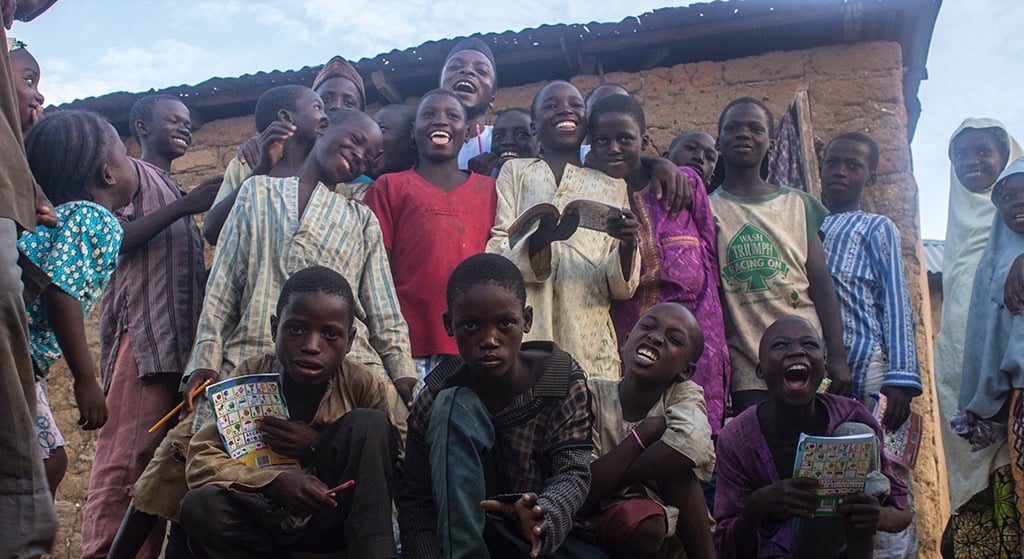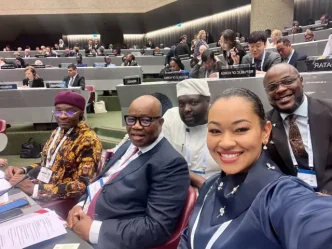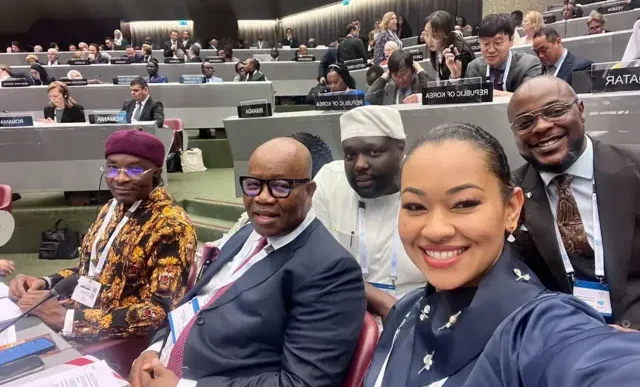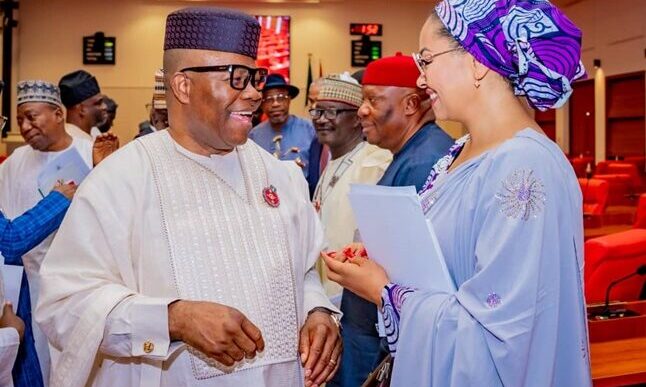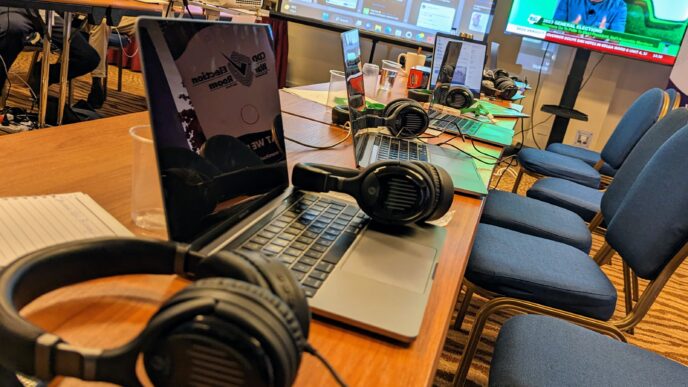Keen observation provided a 13-year-old Maryam Ibrahim, whose indigent parents live in Dange Shuni Local Government in Sokoto State, some 10 kilometers north of the capital, with a rare view into her own future. She had watched how girls of her age were sent into early marriage and also saw how they ended up without any education and life skills, leading to them not being useful to society. She made up her mind that she would not go the way of early marriage, even though she was disadvantaged by the indigent status of her parents as well as the cultural pressure that made early marriage for girls in the locality an acceptable practice.
The young Maryam was still in this quandary about her future when UNICEF, in collaboration with Eleva Foundation, established a community-based Children Protection Centre in Dange Shuni. It did not take her long to convince her parents to enroll her at the center where she is now exposed to learning literacy and life skills with adolescent out-of-school females. The rate at which she has developed in learning has underlined the dictum that “where ability meets opportunity, excellence results”. Her life has not been the same. “There are some things that I have learned here that I would not have learned if I was not here and every day, I see that a bright future awaits me,” she said in Hausa.
The instructor at the center, Mallama Saratu Yusuf, said the enthusiasm shown by the more than 1,000 students, in addition that more of the females in the community seeking enrolment at the facility, has motivated the thought that education revolution would sweep through the community in no distant future. “The more girls we get in to learn literacy and life skills, I think the better for their future,” she said. Already, soap-making and mat-weaving have been introduced to the young females’ curriculum and their demonstrated ability has proved rewarding to the initiative by UNICEF and Eleva Foundation to establish the center whose original plan was to last two years but is now being extended to a longer period due to the response by the community and the growing number of interested young people who see the center as a semblance of the formal school they could not attend.
Yusuf said some of the excelling students have made requests to be enrolled in formal schools from where they can aspire to be professionals with a view to guaranteeing a better and assured future. “The downside to their quest for formal education is that we would have people who are between 13 and 19 years old getting to start from primary 1. But at the same time, everything is down to their determination to excel in whatever discipline they choose,” she said, only just short of saying ‘we have conquered the early marriage scourge for these girls’, especially as the center also provides a counselling unit where the girls get guidance and can report any sexual abuse that they may encounter from men in the community with appropriate action assured.
Advertisement
At a similar facility in Kalalawa village in Kware Local Government, UNICEF and Eleva Foundation have received, perhaps, more than the support they envisaged from the community. Initially, and for mainly cultural reasons, it took a while for the elderly in the community to take the wholesale. But after seeing the positive effects on the girls and boys in the locality who enrolled at the center, they became enthusiastic, especially after seeing the programme from the point of progress and development. Alhaji Liman Hamisu, the spokesperson for the community, who spoke in Hausa, extolled the UNICEF/Eleva initiative, saying “It is an all-encompassing programme and what impresses us more is because it engages our young ones.” Hamisu also said the initiators of the programme should take the support from the Kalalawa community for granted. “Whatever it would take for this programme to succeed and last longer to serve us, we shall give it all our support and encouragement,” he also said.
According to Mr. Pius Uwamanua, Child Protection Specialist and Field Officer at the UNICEF office in Sokoto, the community-based centers target only the Almajiris and out-of-school adolescent girls with both centers having about 20 teachers. “We have a special budget set aside to help establish the students who wish to build on the skills acquired at the centers. For us, the most important thing is to get them engaged meaningfully,” Uwamanua said. A 17-year-old Almajiri, Abubakar Mustapha, is one of the beneficiaries of the budget. He has put his shoe-making skills to good use, raking in money even beyond what a boy of his age could comprehend. Abubakar, who occupied a shop in the community, has become the toast of the community, serving those who can afford his modest prices. “I intend to mass-produce because the people of this community love to shop for leather shoes and slippers at this time of fasting towards the Sallah celebrations,” he said. Despite not being a full adult yet, Abubakar is already raking in good fortune that has steadily made him recall less of his days as Almajiri who learned without skills. His fortune would have increased by the time he began to produce for more communities and, with good fortune in networking, might also get reckoned in the city in the near future.
At the Sultan Muhammadu Macido Institute of Quranic and General Studies, located in Wammako Local Government, there is still a digital center for 150 Almajiri boys and 100 adolescent out-of-school girls, established by the UNICEF/Eleva collaboration, where the instructors tutor the students in Hausa language. Uwamanua said the target is to encourage the students to ultimately make a living out of the digital age trend, even if they do not wish to still attend formal schools. But the District Head of the multicultural Gagi town of Sokoto South Local Government, Alhaji Sani Umar Majebi, who has been impressed by the enthusiasm of the students at the digital center, posited that only more of such center can guarantee the desired accelerated development in the state. “I would really suggest to government to, as a first step, establish the digital center in the three senatorial districts of Sokoto State and equip them well, after which all the 23 local governments would have one each,” Majebi said, even as he argued that funding cannot pose a challenge for the government as no amount of money expended on education should be considered a waste.
Advertisement
A media dialogue hosted by the Child Rights Information Bureau (CRIB) of the Federal Ministry of Information and National Orientation in Sokoto on March 6 and 7, in collaboration with UNICEF, to ‘address the situation of the Almajiri children and out-of-school adolescent girls in Nigeria’ dissected all the foregoing to chart the way forward. Speakers unanimously agreed that transformative action by stakeholders is required to achieve a sustainable turnaround, while also emphasising social and behavioral change by all concerned. Journalists were also tasked with the duty of advocacy that seeks to constantly alert the relevant authorities to their responsibilities.
The outbreak of COVID-19 in Nigeria in March 2020 brought the Almajiri issue in the northern parts of the country to the fore as the authorities were forced to approach it with a touch of humanity, having been ascertained that the Almajiris suffered neglect, denial, abuse, and inequality. Prior to COVID-19, the government had been either short-sighted on the issue or took short-term measures that, at best, merely scratched the surface. As the covid raged, the Almajiris who were mostly homeless roamed freely, spreading the virus. It forced some of the northern states’ governors to swiftly announce a policy to get the Almajiris engaged in life skills. But it turned out to be lip service as the Almajiris continued their free rein after the covid, though reports said then that a disconnect between the government and heads of the Almajiri schools exacerbated the crisis as the latter shunned government order to close the schools and sent the children home. The return to normalcy after COVID apparently made the government abandon the policy, despite the menace that the Almajiris have become to the society and the bleak future they represent. To rescue the country’s future, UNICEF and Eleva Foundation took the initiative to establish programmes for the Almajiris and out-of-school adolescent girls, targeting Sokoto, Katsina, Jigawa, Kano and Kaduna states. Notwithstanding the verifiable success achieved across the five states so far, the reality is that the UNICEF/Eleva collaboration has no statutory role to play in child rights in Nigeria but can only complement the government role.
It should be heartwarming, however, that the Sokoto State Ministry of Women Affairs, in collaboration with relevant civil society organisations and with the support of UNICEF, has verified and registered about 113,000 Almajiris and 136,000 out-of-school adolescent girls, thanks to the Sultan Committee on Almajiri Reform. But there is more to be done, considering that the figures of the vulnerable young people in the state are still unacceptably high.
Advertisement
Views expressed by contributors are strictly personal and not of TheCable.

